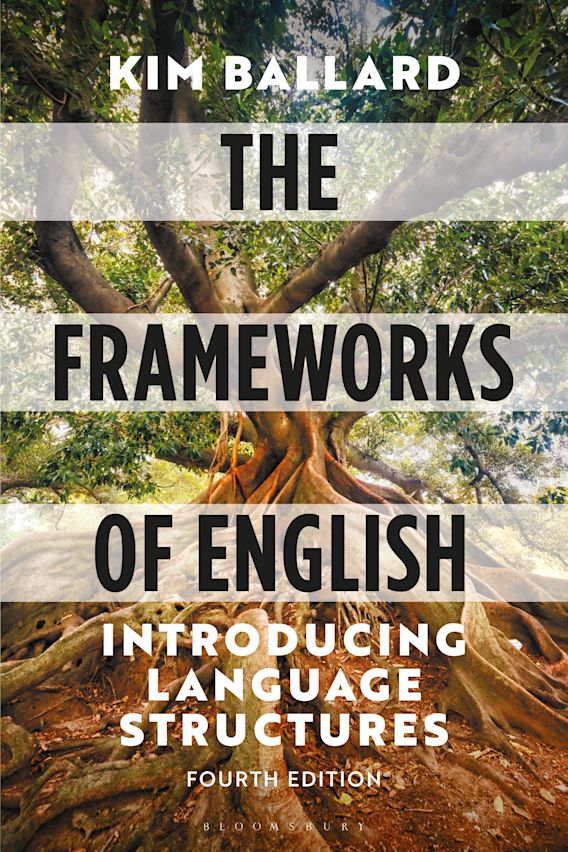


Are you sure you want to reset the form?
Your mail has been sent successfully
Are you sure you want to remove the alert?
Your session is about to expire! You will be signed out in
Do you wish to stay signed in?
Question 1 (Consolidate)
Change the following examples in the manner specified:
| End-shift the sentence subject: | ||
| 1 | Karen absolutely loves to paint | |
| 2 | Karen used to hate school swimming lessons | |
| 3 | Our unlucky neighbour thought he’d won a big prize | |
| Extrapose the sentence subject and introduce a dummy it: | ||
| 4 | That the world is round is obvious | |
| 5 | To run a mile is easy | |
| 6 | Where she’s gone is a mystery | |
| Extrapose a NP postmodifier: | ||
| 7 | An ambitious campaign to help the homeless in London was launched today | |
| 8 | Brian took the view that everyone should help and the others agreed | |
| 9 | I have an interest in protecting wildlife as many people do | |
| Restructure as a cleft sentence in three different ways: | ||
| 10 | My older nephew studied geography at Oxford
| |
Answer/discussion
| 1 | (She) absolutely loves to paint, does Karen |
| 2 | (She) used to hate school swimming lessons, did Karen |
| 3 | (He) thought he’d won a big prize, our unlucky neighbour |
| 4 | It is/it’s obvious (that) the world is round |
| 5 | It is/it’s easy to run a mile |
| 6 | It is/it’s a mystery where she’s gone |
| 7 | An ambitious campaign was launched today to help the homeless in London |
| 8 | Brian took the view – and the others agreed – that everyone should help |
| 9 | I have an interest – as many people do – in protecting wildlife |
| 10i | It’s /It was my older nephew who studied geography at Oxford |
| 10ii | It was geography that my older nephew studied at Oxford |
| 10iii | It was at Oxford that my older nephew studied geography |
Example 7 is based on the assumption that in London is part of the noun phrase an ambitious campaign to help the homeless in London. Moving only the prepositional phrase in London would result in a different meaning: An ambitious campaign to help the homeless was launched today in London. This implies that the launch took place in London but not necessarily that homeless Londoners were the intended beneficiaries, whereas the structure given above doesn’t specify the location of the launch. Replacing the homeless in London with the homeless of London, homeless Londoners or London’s homeless would avoid any confusion.
Question 2 (Explore)
We saw in Section 7.13 how existential there can be used as a dummy subject. In the following examples, identify whether there is existential or whether it’s functioning as an adverb of place.
| 1 | My adventurous friend has travelled here, there and everywhere |
| 2 | There’s no hope that we’ll get there in time |
| 3 | There’s nowhere quite like home |
| 4 | There’s the house I was telling you about, right next to the cinema |
Answer/discussion
| 1 | …here, there and everywhere | adverb of place |
| 2 | There’s no hope that we’ll get there in time | existential; adverb of place |
| 3 | There’s nowhere quite like home | existential |
| 4 | There’s the house…, right next to the cinema | adverb of place |
When there is an adverb of place, it can be used in contrast to the adverb here. (In Example 3, although the sentence is about place, this is expressed through the adverb nowhere and it wouldn’t be possible to substitute there with here.)
Question 3 (Explore)
We also noted in Section 7.13 that the notional subject, not the dummy subject there, determines whether the verb takes the singular or plural form. In what ways are these examples exceptions to that rule?
| 1 | There’s some unexpected visitors at the door |
| 2 | There is definitely two ways of doing this |
| 3 | There is a cup of tea and a piece of cake in the kitchen for you |
Answer/discussion
Example 1 illustrates how the verb can be singular when there and is are contracted to there’s. In Example 2, although are is also possible, the addition of the adverb definitely between the subject and the verb makes the use of the singular is acceptable. In Example 3, the coordinated noun phrases (a cup of tea and a piece of cake) seem to function as a single item by following is. When they precede the verb, are is the natural selection: A cup of tea and a piece of cake are waiting for you in the kitchen.

.